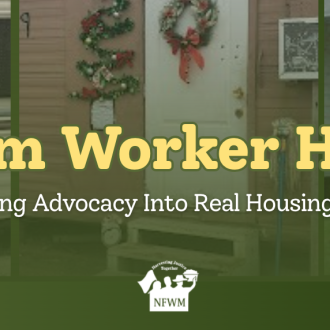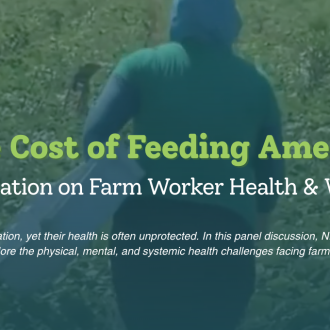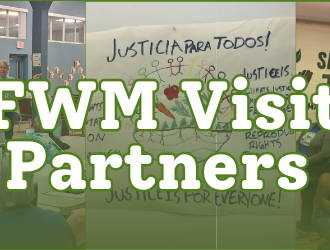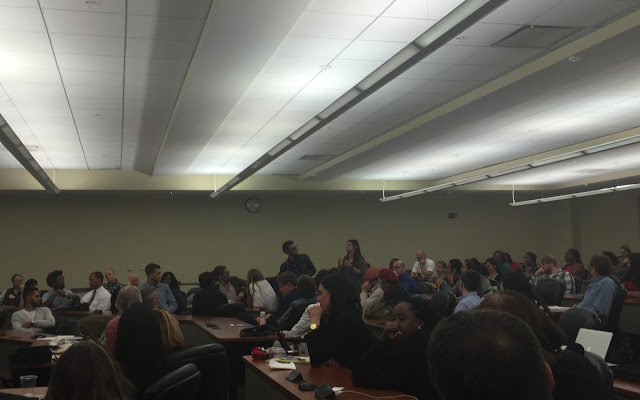
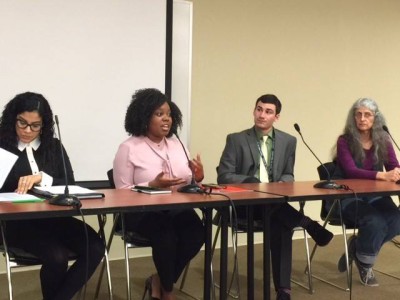 Last Wednesday, Jan. 27, was panel discussion at the FAMU College of Law hosted by Florida Institute for Reform and Empowerment called “From Paris to Orlando: Achieving Climate Justice in Our Communities.” The panel consisted of 4 speakers representing various interests and institutions: Jeannie Economos of the Farmworker Association of Florida, Josephine Balzac, representing the Earthweb Foundation, Jasmine Burney with NextGen Climate, and Chris Castro, representing the City of Orlando Green Works. This event was attended by around 100 community members. There was a short intro about the Climate conference in Paris and the background of the decisions that were made at that meeting. The decisions made at the conference are not legally binding, although the conference set in place a structure for goals to be revisited every 5 years.
Last Wednesday, Jan. 27, was panel discussion at the FAMU College of Law hosted by Florida Institute for Reform and Empowerment called “From Paris to Orlando: Achieving Climate Justice in Our Communities.” The panel consisted of 4 speakers representing various interests and institutions: Jeannie Economos of the Farmworker Association of Florida, Josephine Balzac, representing the Earthweb Foundation, Jasmine Burney with NextGen Climate, and Chris Castro, representing the City of Orlando Green Works. This event was attended by around 100 community members. There was a short intro about the Climate conference in Paris and the background of the decisions that were made at that meeting. The decisions made at the conference are not legally binding, although the conference set in place a structure for goals to be revisited every 5 years.
After some more talk about the importance of the COP 21 (Conference of Parties) meeting and what we’re hoping to change on a global scale, the panelists had the chance to introduce themselves and give some background on their cause. Having Jeannie there to introduce the human element of where farm workers fit into this discussion was invaluable. I think that the conversation around agriculture and environmental justice was much needed although I would have liked to have more emphasis placed on those aspects. When the questions were opened up to the audience, there was a wide variety of concerns, including tourism, education, consumption, human rights and transportation.
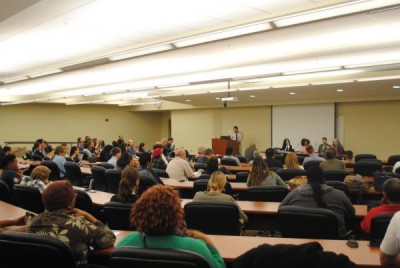 Much of the discussion at this event was centered on the importance of local government, voting, and getting involved to make a change. We heard about programs in the works to reduce energy consumption in some of the poorest neighborhoods (loans to retrofit homes), and the responses to these programs (not widely advertised, you want to give a low-income person more debt?).
Much of the discussion at this event was centered on the importance of local government, voting, and getting involved to make a change. We heard about programs in the works to reduce energy consumption in some of the poorest neighborhoods (loans to retrofit homes), and the responses to these programs (not widely advertised, you want to give a low-income person more debt?).
While many of the questions just felt like a rehashing on things that had already been discussed (as is often the case with groups of this size) I was thankful for the opportunity to break into smaller groups to discuss the topics (transportation, energy, food, poverty, consumption) on a smaller scale.
I think that this event was important in bringing people together who were interested in the issue, and gave brief mention to including voices of people who are generally overlooked in these circumstances (which could have been a whole panel unto itself). As was emphasized at the end of the night: it’s often the people who do not have access to events like this that are most affected by the issues. I hope that these questions of farm worker’s rights and voices of the oppressed will continue to be included in these discussions and talked about more forthrightly in the ongoing climate change dialogue.
Evie Burr
Orlando YAYA

